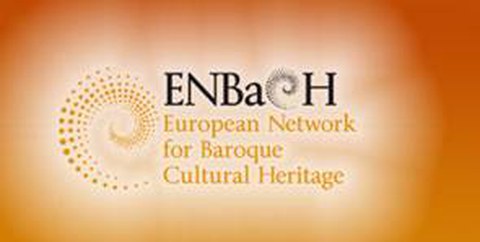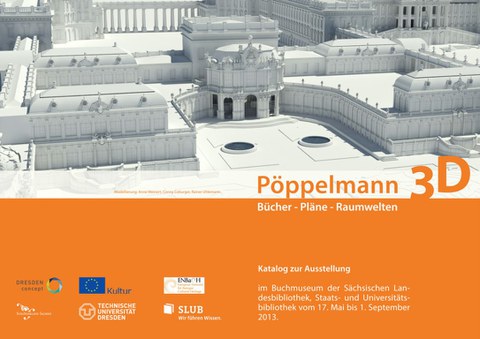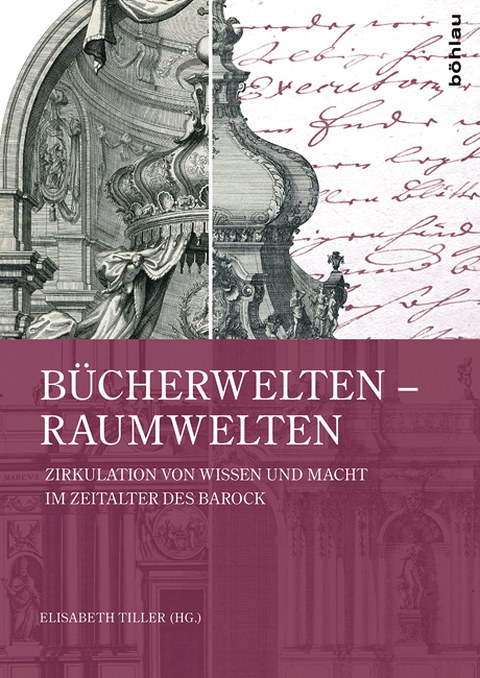Research Projects
Ongoing research projects
Dieses DFG-Projekt untersucht die Rolle fiktionaler Texte hinsichtlich ihrer gesellschaftlichen Strukturierungspotenziale am Beispiel von kolonialem und postkolonialem othering. Othering wird hier verstanden als gruppenspezifische Alterisierung im Sinne marginalisierender bzw. asymmetrisierender Zuschreibungspraktiken. Mit der kognitiven Bedeutung von Fiktionalität als einem der ways of worldmaking stehen damit Formen und Funktionen von Erzählungen für die gesellschaftliche Selbstverständigung im Fokus. Diese werden zum einen am Beispiel von literarischen Texten mit Kolonialismusbezug analysiert, die zwischen 1900 und 1943 niedergeschrieben wurden, sowie zum anderen anhand von nach 1989 entstandenen Migrationsnarrationen, die mit Referenzen auf den italienischen Kolonialismus arbeiten. Das Projekt nimmt dabei die Darstellung und Reflexion von Ausgrenzungsmarkierungen nicht-autochthoner Menschen in Kolonial- und Migrationskontexten in den Blick, weil über das Erzählen von othering nachvollziehbar wird, welche ordnenden, moderierenden und reflexiv-pointierenden, aber eben auch generativ-kodierenden Potenziale fiktionale Narrationen für die kognitive Rahmung gesellschaftlicher Selbstverständigung besitzen. Das Projekt geht dabei diachron vor (italienischer Kolonialismus bis 1943 / Immigration nach Italien seit 1989), um die jeweils literarisierten Modi von (transkulturellem) othering unter kolonialen wie postkolonialen Vorzeichen exemplarisch zu untersuchen und, da diametral motiviert, aufeinander zu beziehen. Im Zentrum stehen dabei neben Rassismen insbesondere gegenderte Zuschreibungspraktiken, die in der Regel über sexualisierte Markierungen operieren: adressiert wird jeweils der Körper der VerAnderten, um besonders effektiv devalorisierende Differenzierungen in Szene zu setzen. Ausgangsthese hierfür ist die Annahme, dass post/koloniale Erzähltexte nicht nur Prozesse des othering reflexiv machen, sondern – mit Bezug auf den Kolonialismus – othering auch legitimieren und normalisieren können.
Laufzeit: 2026-2029
This project, which takes literary texts as its starting point but will also take film productions into account, focuses on the interference of reality and representation. This refers to the interaction between political, economic or social events or constellations and their representation in the media, for example in literature or film, which interact in a different way in the present. In recent years, a visibly more dynamic discussion on the interplay between fictionality and factuality can be observed across disciplines: of facts from real reality and fictional strategies for generating imaginary worlds, which sometimes lead to discussions of a new realism. The project deals with textual or cinematic representations of sometimes latent, but especially politically or socio-politically topical themes, which are not created exclusively within the framework of traditional literary conventions, but also with the help of innovative, cross-border literary or cinematic procedures, hybridizations and intermedial extensions. The area of access is the Italian cultural space, the resonance space of the Italian narrative and interpretation community , in which literary or cinematic narratives that explicitly deal with the political reality of the country can be increasingly found in recent years.
The Venetian Marco Polo was neither the first late medieval traveler from the Italian peninsula to undertake long journeys to distant regions of the world, nor the first to write about them. Nevertheless, he initiated a tradition that would shape a large number of travelogues written by merchants and bankers, seafarers, cartographers and other travelers after their return to Europe or the Italian peninsula until the end of the great discoveries around 1530. The research project examines these 15th and 16th century travelogues not only with regard to a rinascimental genre canonization, but also attempts in particular to examine the modes of the valorization of experiential knowledge, the epistemically increasingly goal-oriented generation of knowledge, the humanistically guided classification and coding of foreign others and their cultures, the meaningfulness of the travelogue, and the way in which it is written. The aim is to describe and analyze the modes of valorization of experiential knowledge, the epistemically increasingly goal-oriented generation of knowledge, the humanistically guided classification and coding of foreign others and their cultures, the meaningful narrativization of the cultural contacts experienced and the associated conventions of world interpretation in order to systematically grasp the Italian specificity of these inscriptions of distant worlds.
Completed research projects
Subproject M of the Collaborative Research Center 1285 https://tu-dresden.de/gsw/sfb1285/forschung/teilprojekte/teilprojekt-m-italianistik
Head: Prof. Dr. Elisabeth Tiller
Duration: 2017 - 2022
The sub-project focuses on literary and cinematic narratives of migration in the Italian narrative community in order to analyze aesthetic stagings of invective social conflicts since the beginning of the 20th century. The recent history of migration in Italy opens up completely different perspectives on migration conflicts, which are given cultural meaning in narratives. Conflicts between "us" and "them" groups are negotiated narratively and positioned in the context of emigration, immigration, internal migration, colonialism and post-colonial constellations. Literature and film thus discuss borders and identification patterns of imaginary communities that are involved in the negotiation of cultural order in connection with historical migration processes.
Italy is particularly suitable for such an investigation, because extensive opposing migration movements can be observed here. While Italian society was characterized by emigration for almost the entire 20th century, this trend has been reversed since the early 1990s: Italy is undergoing a transformation from an emigration society to an immigration society - with this transformation creating considerable economic, social and cultural friction. This makes it possible to observe divergent conflict situations, ideological codings and cultural interpretations and to determine variations or continuities of the invective.
Literary and cinematic narratives of migration not only observe, describe and encode invective as part of migration conflicts. At the same time, they analyze and interpret these conflicts of us/them groups on an aesthetic meta-level as part of social communication. The sub-project therefore asks
- what role narrative stagings of invectiveness play in migration narratives,
- how they dynamize, reflect or moderate the social discourse on migration and its invective components,
- how the negotiation and plausibilization of social conflicts, political identifications and cultural scripts takes place historically and in the media,
- how confrontational friend-foe constellations are made plausible and antagonistic patterns of action are (de)legitimized,
- which historical discourse politics, knowledge regimes and affective dynamics underpin invectively enriched migration narratives, and finally
- how aesthetically modeled narratives and politics interact.
The aim is to contribute to the SFB's theory-building, in particular through considerations that show that and how (de)legitimation discourses of social asymmetry are always narratively anchored.
GenderConceptGroup of the TU Dresden (Roswitha Böhm / Maria Häusl / Stefan Horlacher / Antonia Kupfer / Susanne Schötz / Wieland Schwanebeck / Elisabeth Tiller)
Duration 2020-2022 (1 postdoc, 1 WMA 50%)
The project operates in the field of cultural-scientific technology assessment for digitization processes or the digitality of social relations and attempts to critically reflect on the constitutive conditions of digital change at the interface of gender and technology research.
The project Digital Gender: Negotiations of gender between reinvention and dissolution in the 21st century of the GenderConceptGroup of TU Dresden, funded by the SMWK (RL TG 70), duration 2020-2022 (1 postdoc, 1 WMA 50%), investigates emerging everyday practical changes in the course of digitization as well as fictional representations of the digitization process from a gender-theoretical perspective. On the one hand, it is looking for insights into how gender and digitality interact, i.e. what effects digitality in its various forms (from artificial intelligence to avatars to cyborg hybrids) has on gender identities, bodies and the gender order of a society. On the other hand, the focus is on which gender images are taken up and further developed in the course of digitalization. The subject of the analysis is both current, fictionally generated narratives in literary and audiovisual media as well as everyday artifacts of digital human-machine communication (Alexa, Siri and co.). The project assumes that both areas of investigation can act as seismographs of current and future developments from the perspective of gender studies.
Digital Gender operates in the field of cultural-scientific technology assessment for digitization processes and the digitality of social relations and attempts to critically reflect on the constitutive conditions of digital change at the interface of gender and technology research. With regard to the innovation strategy of the Free State of Saxony, one of the project's objectives is to transfer the research results into teacher training, thus responding in a targeted manner to the requirements of Saxony's educational system.
Link to https://tu-dresden.de/gsw/forschung/projekte/genderconceptgroup
2009-2014: TU sub-project Baroque Fantasies - Creating Exotic Spaces. The Case of Dresden of the European project European Network for Baroque Cultural Heritage (ENBaCH) in the Culture Programme of the European Commission (together with Prof. Dr. Maria Lieber). The EU project ENBaCH was recognized as a "Success story" by the Directorate General for Education and Culture (DG EAC) in November 2015
Projects/universities involved in ENBaCH:
Università di Roma "La Sapienza"/Facoltà di lettere e filosofia
Universitat de Barcelona/Departament d'Història moderna
TUD Dresden University of Technology/Faculty of Linguistics, Literature and Cultural Studies
Ernst Moritz Arndt University Greifwald/Institute of History
École des Hautes Études en Sciences Sociales Paris
Università di Teramo/Dipartimento di Storia e Critica della politica
Uniwersytet Warszawski/Instytut Badan Interdyscyplinarnych "Artes Liberales"
Collections of the Medical University of Vienna
Coordination: Prof. Renata Ago, Università degli Studi di Roma "La Sapienza"
May 17 to September 1, 2013
Exhibition "Pöppelmann 3D. Books - Plans - Spatial Worlds", Book Museum of the Saxon State and University Library Dresden.
Link to the exhibition catalog
Virtual Library M.D. Pöppelmann (German)
Virtual Library M.D. Pöppelmann (English)
2015
Elisabeth Tiller (ed.): Worlds of Books - Worlds of Space. Circulation of Knowledge and Power in the Baroque Era, Vienna/Cologne/Weimar: Böhlau.
The Saxon Elector and Polish King Augustus the Strong employed a large artistic staff to give magnificent expression to his political plans. One of the protagonists of the demanded visualization of power was court architect Matthäus Daniel Pöppelmann, who, by virtue of his office, endeavoured to keep up with developments in art, technology and knowledge in Europe's centers of innovation.
With contributions on Pöppelmann and his private library, on the book collections of professional colleagues and court members such as Ehrenfried Walther von Tschirnhaus, Georg Wenzeslaus von Knobelsdorff and Balthasar Neumann, and finally on the spatial and representational policies of Augustus the Strong, this volume illustrates a newly tailored panorama of the Baroque circulation of knowledge.



